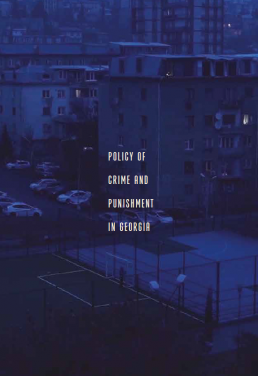საერთო ცხელი ხაზი +995 577 07 05 63


Head: Guram IMNADZE
Number Of Pages: 152
Publication Year: 2021
ISBN: 978-9941-8-3280-2
Authors: Tornike GERLIANI
Research Methodology
In the aftermath of the detrimental zero-tolerance policy, a new political force headed the state with the idea of liberalization of the criminal justice system. Many important reforms were planned and carried out during this period. However, undertaken inadequate efforts could not substantially change and improve the situation in the country. With varying intensity, criminal law remains the main instrument of repression in the hands of the state.
The present study assesses the existing criminal policy in the country, against the background of the social and economic factors contributing to crime. The study is mainly based on the sociological research data on two types of crimes – property crime (theft/robbery) and certain types of drug offenses.
The study briefly presents the problems of criminal policy formation and the stages of its transformation in the country. The paper seeks to reveal the extent to which the state has been able to replace the experience of zero tolerance with a human-centered approach; considers social and economic factors in the process of criminal policy formation in the country.
Based on the sociological research and different criminological theories, the study provides a legal analysis of social factors leading to property crimes (theft/robbery) and individual drug offenses, their prevention mechanisms, and the state sentencing policy for these two types of crime. The last part of the study is devoted to the analysis of the gaps in the reintegration process after post imprisonment.
The website accessibility instruction